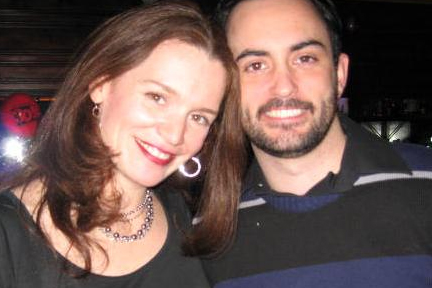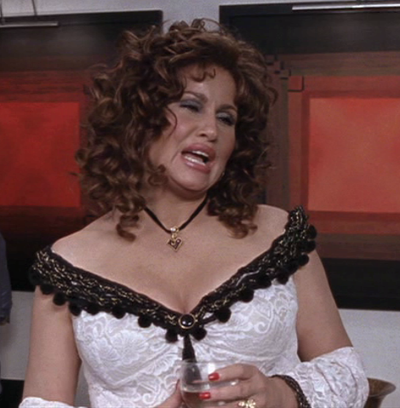
In which we have a look at this week's
New York Times Book Review.
Fighting a cold, I haven't been very enthusiastic this week, at least about
the Book Review. The dispiriting cloud of dusty triviality was
thicker in this week's issue than it usually is. Only one of the six novels
seemed unmistakably serious, and almost a third of the nonfiction titles struck
me as miscellaneous and lacking or failing to merit truly general interest.
I did like Greg Clarke's very droll gargoyle, above, which illustrates
Caroline Weber's review of Andrew Hussey's Paris: The Secret History.
I've seen this book in the shops, and I agree with something that Ms Weber hints
at: it could have been much more solid.
Yes
Kaiama L Glover's rousing review of Michael Thomas's novel,
Man Gone Down, manages to make reading
the book sound like elevating homework. She explores its many racial issues at
the expense of explaining what sounds like a feverish plot.
One of the bigger questions posed by the novel is how to pursue
the American and other dreams when the realities of race stand so mightily
in the way.
It's a bit numbing. A more intriguing, not to
say appealing, tale of advance in America is told, if Warren Goldstein's review
is to be trusted, by Stephanie Capparell's The Real Pepsi Challenge: The
Inspirational Story of Breaking the Color Barrier in American Business.
After World War II, Pepsi chief Walter S Mack, Jr, resolved to capture the "Negro
Market" for his soda. He hired Edward F Boyd to run a team of twelve
African-American salesmen.
More journalism than history, more inspiration than analysis,
The Real Pepsi Challenge nevertheless deepens our appreciation not, as
the author would have it, for the platitude "that diversity is good for
business and that business should be good for diversity," but for the
persistence and courage of those willing to break barriers and risk the
consequences.
David Orr, writing about
the Notebooks of Robert Frost seems more interested in alliances and
enmities among American poets than in discussing Frost's notebooks; as happens
so often in the Book Review, this is "poetry criticism" that reads like a
Page Six for poets.
No, the point is that whenever we begin forming up teams in
American poetry, we run into the problem of picking sides for such complex
and hard-to-place poets as Frost, T S Eliot and Wallace Stevens (not to
mention Marianne Moore, Elizabeth Bishop and Lorine Niedecker.
Why, this problem often keeps me up at night. (The problem poets constitute
their own team.)
David Oshinsky's very good review of Vaccine: The Controversial Story of
Medicine's Greatest Lifesaver, by Arthur Allen, tells of hope and wonder
giving way to suspicion and benightedness.
The problem appears to be growing. As more children go
unvaccinated in the United States, there has been a rise in
vaccine-preventable diseases. Meanwhile, fewer pharmaceutical companies are
no producing vaccines, citing the high cost of te4sting, diminishing markets
and a fear of litigation. For Allen, a reversal of these trends will require
something long overdue: a frank discussion of about the risks and benefits
of vaccination. His splendid book is a smart place to begin.
Niall Ferguson is too complex a writer - and certainly too demanding a critic
- for the pages of the Book Review. That's another way of saying that his
work in this line is not fully intelligible to those who haven't yet read the
book under discussion. This leaves the reader in a state of greater, not lesser,
confusion. Even though I haven't read it, I believe that Rupert Smith's
important book, The Utility of Force: The Art of War in the Modern World,
deserves a heartier recommendation to general readers.
Can we do better in future? Here Smith delivers less than I had
hoped for.
Ben MacIntyre's review of Edward Luce's In Spite of the Gods: The Strange
Rise of Modern India, is more helpfully sympathetic - to the reader as well
as to the writer.
Indian diplomats, academics, Hindu nationalists and makes of
cow-dung anti-dandruff shampoo will not enjoy this book. Most others, I
suspect, will relish even the more stringing appraisals it contains, for
what comes through is a whole-souled enthusiasm for the place and its
possibilities, an optimism that Indian democracy will always overcome.
Simon Blackburn is quite warm about A C Grayling's
Descartes: The Life and Times of a Genius, but he spends his
review on a thumbnail of the philosopher's life and work, and he has nothing to
say about the book except that it "deftly conjures up the political and
religious conflicts of [Europe], and brings to life those distant characters and
events that began to shape modern Europe..." Mr Blackburn does not address the
need for a new book about a foundational philosopher, and, for a philosophy
professor himself, he oddly neglects to urge readers to read Descartes.
Maybe
It is much easier to decide which nonfiction books are worthy of attention
than it is to do the same for novels, because subject matter is so much less a
matter of importance. One must rely on the very review that one is assessing.
Thomas Mallon's review of Consolation, by Michael Redhill, is
sympathetic, and, with a substantial excerpt, would have given a clear picture
of the novel - insofar as it is possible to be clear about a pair of muddy
stories about Toronto, photography, and excavation. One is left with a doubt
that Consolation might be more curiosity than classic. Similarly, Ben
Fong-Torres fails to lift Bich Minh Nguyen's Stealing Buddha's Dinner: A
Memoir, above the taint of triviality that seeps from too much talk about
food.
Christopher de Bellaigue writes of Skylark Farm,
a novel about the Armenian Genocide by Antonia Arslan,
that
Putting down this book, it's worth trying to separate Arslan the
promising novelist from Arslan the iffy historian.
That's about as damning as one might inadvertently be. Indeed, the overall
impression made by the review is that Skylark Farm is a rallying cry for
the Armenian diaspora. Michael Gorra is somewhat more straightforward about
Louis Begley's Matters of Honor.
It's an idiosyncratic voice - though only enough to irritate, not
interest. Sam presents himself as a lens on Henry's life, an invisible
witness to his eventual decision to cut whatever ties the New World has
given him. But that lens keeps losing its focus.
This
may be fun to read, but it's not good reviewing. Mr Gorra hints that Mr Begley
has written this book before, only better. If so, it doesn't merit free-standing
coverage.
Elizabeth Gaffney's review of Michael Lewenthal's Charity Girl
is
sympathetic; Louisa Thomas's review of Alice Hoffman's
Skylight Confessions
is not. Neither makes a solid case for including the book in the Review.
Simon Hussey's
Paris: The
Secret History seems, in Caroline Weber, to be a racy but not
very diligent look at the underside of Paris, a raucous celebration of less
privileged Parisians over the centuries that talks of the "Palais de Luxembourg"
and neglects important related work by Michel Foucault and Robert Darnton.
I had to reread Blake Bailey's review of The Way It Wasn't: From the Files
of James Laughlin, edited by Barbara Epler and Daviel Javich a second time,
aloud, because I missed, the first time, Mr Bailey's single sentence about the
book, which he says
is handsome, lavishly illustrated and cobbled together purely for
the fun of it. It deserves a place on the coffee table or toilet tank of any
discerning littérateur.
Laughlin, the founder of New Directions, the publisher of experimental and
otherwise advanced American writing, kept an informal "auto-bug-offery" that now
achieves posthumous publication. Mr Bailey devotes the bulk of his review to a
recap of Laughlin's life. It's very beside the point.
Tom Ferrell's review of Anne Morrow Lindbergh: First Lady of the Air,
by Kathleen C Winters, says that the book is "pointed and modest," and
"concerned almost entirely with Anne as a figure in aviation history." More
curiosities!
Typecasting: On the Arts and Sciences of Human
Inequality: A History of Dominant Ideas, by Ewen and Ewen (a
husband-and-wife team of scholars) clearly addresses an important subject, but
David Berreby's review is so unfavorable - almost hostile - that one wonders
what the book is doing in the Review in the first place. A nosegay of
incomplete sentences:
Dripping with unearned knowingness, indifferent to the factual
debate. And just plain wrong.
My heart sank when I turned the page and saw Tara McKelvey's Nonfiction
Chronicle. I thought they might have given up on this unsatisfying format, which
is both too long and too short. If a book is not significant enough for a
free-standing review, then it deserves no more than a sentence or two that notes
its publication with the breeziest assessment. (John Leonard used to do this
very well at The Atlantic, where Benjamin Healy and Benjamin Schwarz
continue in updated style.) Stretched out over a long paragraph, a review is
almost certain to lose focus, especially when Ms McKelvey, whose impatience with
the format is palpable, starts out spaciously, in features-article style. I no
longer see the point in evaluating these pieces. They're literary monsters, not
meant to be.
No
Terry McAuliffe (with Steve Kettman) appears to have written a name-dripping
memoir, What a Party! My Life Among Democrats, Candidates, Donors, Activists,
Alligators, and Other Wild Animals. Of McAuliffe on the Global
Crossing scandal, Rick Perlstein complains,
You might say the more proximate wrongdoing was going on TV in an
election year in which corporate greed was the Democrats' best issue and
saying a company that had only not quite swindled millions of
pensioners and individual investors was "great" - and then being so
un-self-aware as to brag about it in your memoir.
Sam Tanenhaus, the editor of the Book Review, writes this week's
Essay, "Beyond Criticism," a propos of the Library of America's publication of
three Saul Bellow novels. The title says it all.
 ;
;



